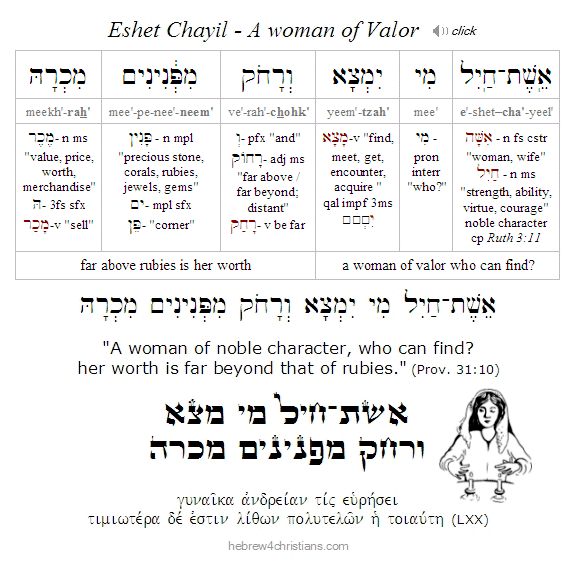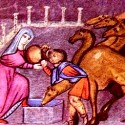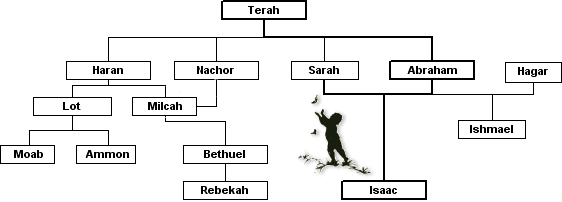|
IN THE SAME VERSE that the great patriarch Abraham is described as "old and come into days" (זָקֵן בָּא בַּיָּמִים), he is described to have been blessed bakol (בַּכּל)- "in everything" (Gen. 24:1). Contrary to the ideals of youth-obsessed culture, the Torah regards aging as a process of construction, of upbuilding, of perfection -- not of decay. The sages say that the elderly "wear the days of their life as a garment," that is, as an accumulated "presence of days" that attends to the soul of the person. Indeed, the Talmud notes that the word zaken ("elder") can be read as zeh kana, "this one has it." Maturity and wisdom are qualities that should be honored in our culture -- not abhorred or disregarded. As the proverb puts it, עֲטֶרֶת תִּפְאֶרֶת שֵׂיבָה / aseret tiferet sevah: "Gray hair is a crown of glory" (Prov. 16:31). That the LORD blessed Abraham "bakol" means that He revealed his presence to him in all things. This is the meaning of the "Abraham was old, come into days." The days of his life were filled with the wonder of God's presence, and that is why he died content (Gen. 25:8).
Before he died, however, Abraham wanted to set his household affairs in order. His sole land possession in the Promised Land was his burial place (i.e., the Cave of Machpelah (מְעָרַת הַמַּכְפֵּלָה), where Sarah was also buried), but there was a nagging concern that his son Isaac needed a wife to carry on the family line. Indeed, the last recorded words we have of Abraham concern instructions to his servant regarding the mission to find Isaac a wife: "The LORD, the God of heaven (אֱלהֵי הַשָּׁמַיִם), who took me from my father's house and from the land of my kindred, and who spoke to me and swore to me, 'To your offspring I will give this land,' he will send his Angel before you (יִשְׁלַח מַלְאָכוֹ לְפָנֶיךָ) and you shall take a wife for my son from there" (Gen. 24:7). Abraham wanted his son to find a wife among his relatives rather than from among the Canaanites, and he therefore commissioned his servant to arrange a marriage.
Though he is not explicitly named in the account, this "elder servant" is undoubtedly Eliezer of Damascus (Gen. 15:2). Eliezer (אֱלִיעֶזֶר), whose name literally means "my God will help," is regarded as a consummate example of a godly servant. In Christian theology, Eliezer is regarded as a picture of the Holy Spirit (רוּחַ הַקּדֶשׁ) sent on a mission to find a bride for the Sacrificed Seed of Abraham (i.e., the Messiah Yeshua). Eliezer dutifully departs on his mission and waits by the "well of water," interceding on behalf of righteousness... He asks for a sign from heaven: "Let the young woman to whom I shall say, 'Please let down your jar that I may drink,' and who shall say, 'Drink, and I will water your camels' -- let her be the one whom you have appointed" (Gen. 24:13-14). Rebekah's response of kindness and generosity (i.e., חֶסֶד, chesed) to a tired wayfarer demonstrated God's choice. Note that the test concerned the inward character of the woman, not her status or beauty or other worldly factors. And since a single camel needs about 25 gallons of water and requires 10 minutes to drink, watering ten camels would require 250 gallons and at least a couple hours of work running back and forth to the well - no small task for anyone! Rebekah possessed Abraham's qualities of gracious hospitality and diligence...
Eliezer's prayer to find a bride for Isaac (the very first recorded prayer of the Torah) did not appeal for a great miracle such as splitting the sea, but instead relied on the providential and "hidden hand" of God that governs the affairs of life (i.e., hashgachah pratit: הַשְׁגָּחָה פְּרָטִית). His prayer at the well relied on God to lead him to a chosen woman who, like his master Abraham, would extend compassion to a person in need (חֶסֶד). The Torah therefore reveals that far from being a coincidence or chance encounter, then, "before he had finished speaking, הִנֵּה רִבְקָה - behold Rebekah..." (Gen. 24:15). "Before they call I will answer; while they are still speaking I will hear" (Isa. 65:24).
Consider for a moment the great character of the woman God chose to be the bride for the Abraham's promised heir... Rebekah was willing to leave her family - all that she knew - based on an "otherworldly" promise. Her response to the invitation was simply: אֵלֵךְ - "I will go" (Gen. 24:58). Her courageous willingness was likewise a characteristic of Abraham who was willing to leave his homeland in search of the greater things of God. Like Abraham, Rebekah chose to be ger ve'toshav (גֵּר־וְתוֹשָׁב) - a "stranger and a sojourner" - who left everything behind in order to become part of God's chosen family...
Hebrew Lesson:
Proverbs 31:10 Hebrew reading:
 |
|




